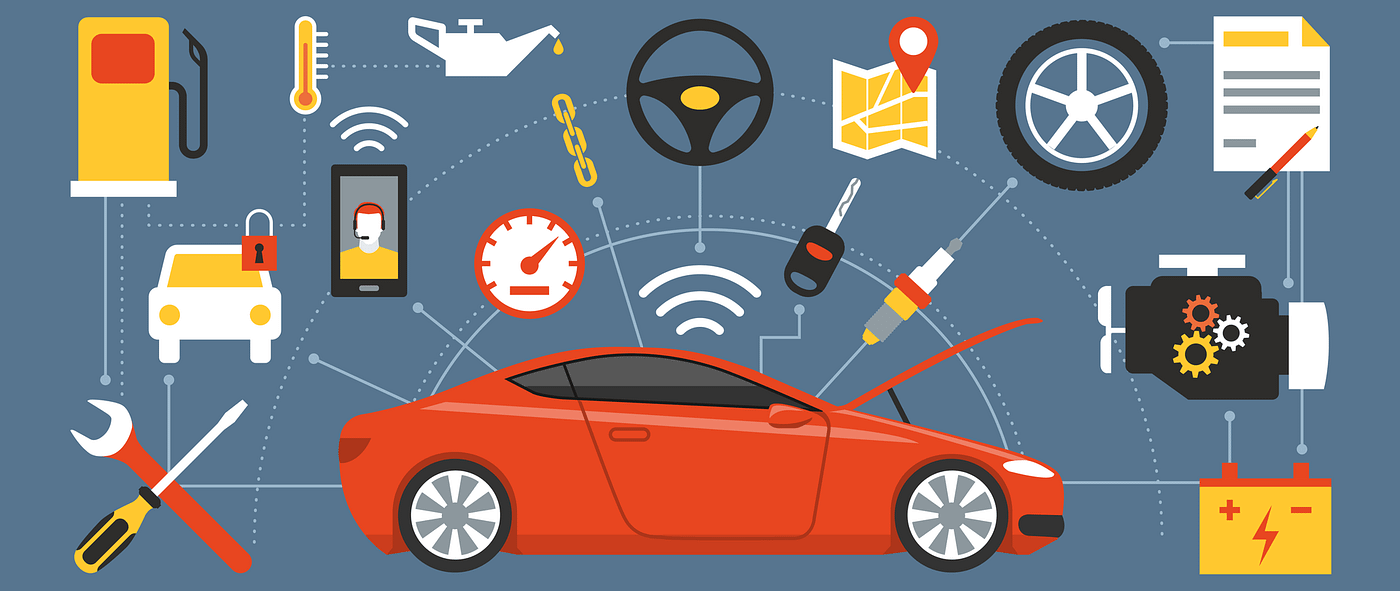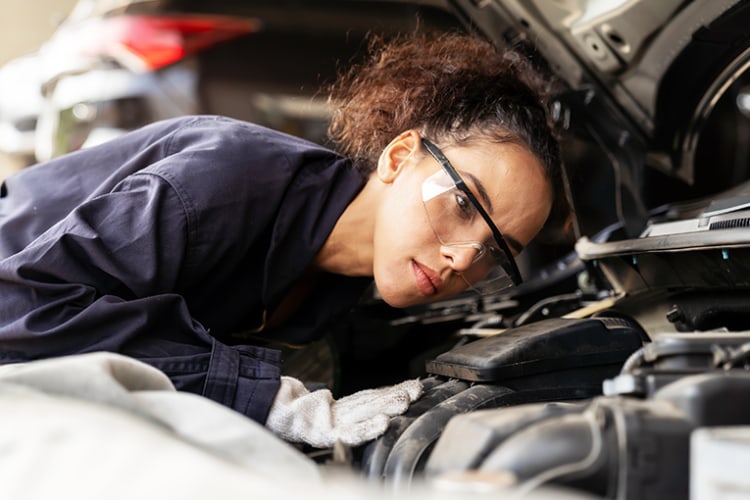All Categories
Featured
When your car gets too hot, it can seem like a significant emergency situation, yet remaining calm and following the appropriate actions can protect against serious engine damage and aid obtain you back when driving safely. In this post, we'll discover what to do if your automobile overheats and use preventative tips to minimize the threat of overheating in the future.
What to Do If Your Vehicle Overheats. Draw Over to a Safe Location The initial and most important action if your automobile begins to get too hot is to draw over to a safe spot immediately. Switch on your risk lights and lead your lorry to the shoulder or right into a parking lot. Keeping your automobile running while it's overheated can create extreme damage to the engine, so it's essential to close the engine off as soon as possible.
Let the Engine Cool Off Once you've safely stopped, enable the engine to cool down. You should never try to open the radiator cap while the engine is still hot, as the release of vapor or warm coolant can create burns. Wait at the very least 15-20 minutes to enable the engine temperature level to go down to a much safer degree before proceeding.
![]()
Check the Coolant Level After the engine has actually cooled down, check the coolant degrees by evaluating the tank or radiator. If it's low, top it off with a mix of coolant and water (as defined by your lorry's supplier) Always make use of caution when opening the coolant tank, as pressure may have built up.
Try To Find Visible Leakages While you wait for the engine to cool down, aesthetically examine the radiator, hoses, and coolant tank for any kind of noticeable leaks or splits. A dripping radiator or tube is a typical reason of overheating. If you discover a considerable leakage, it's better to call a tow solution than risk driving better and triggering extra damages.
Reboot the Engine After enabling the engine to cool and making sure the coolant is rounded off, begin the engine and keep track of the temperature level gauge. If the temperature remains to climb quickly, it's best to shut the engine off and ask for roadside help or a tow to the nearby auto mechanic.
![]()
How to avoid Getting Too Hot in the Future. Consistently Examine Coolant Degrees One of the easiest means to stop overheating is by keeping the appropriate level of coolant. Over time, coolant can evaporate, so consistently inspect the coolant levels in the reservoir. Low coolant degrees can create the engine to overheat promptly, so top it off as required.
Check the Radiator The radiator plays a vital role in keeping the engine cool. Regularly inspect the radiator for any clogs, dirt, or particles that can obstruct air movement. If you observe any signs of damages, such as rust or leakages, have it fixed or changed immediately.
Change the Thermostat and Water Pump A malfunctioning thermostat or water pump is a common root cause of overheating. The thermostat manages the circulation of coolant, while the water pump circulates it through the engine. If either part is defective, it can avoid correct cooling. When required., have your mechanic inspect these parts frequently and replace them.
Flush the Air conditioning System Gradually, coolant can deteriorate and become inefficient, creating an accumulation of debris in the system. Purging the cooling system every 30,000 miles, or as suggested in your car's manual, assists to remove any type of sludge or accumulation and makes certain the cooling system is working appropriately.
Monitor the Problem of the Tubes The hoses in your lorry's cooling system can break or split gradually. Check the tubes for any kind of indicators of wear, such as protruding, splits, or leaks, and change them if required. Protecting against coolant leaks can go a long way in avoiding getting too hot.
![]()
Drive Sensibly Hostile driving, such as accelerating promptly or driving at broadband, puts added stress on your engine and its cooling system. Attempt to drive at modest speeds, particularly on hot days or when driving on steep slopes, to reduce the possibilities of getting too hot.
Avoid Overloading Your Vehicle Bring too much weight in your lorry puts stress and anxiety on the engine and air conditioning system. Always be conscious of your car's weight restriction, especially if you're hauling heavy tons, towing a trailer, or driving fars away in hot weather.
Verdict. A getting too hot vehicle can be a frightening experience, but understanding how to react and avoid it can save you time, cash, and prospective engine damage. Constantly examine your coolant degrees, evaluate key parts like the radiator, thermostat, and pipes, and comply with a normal upkeep timetable. By remaining on top of your car's cooling system, you can lower the risk of overheating and take pleasure in a smoother, more secure driving experience.
What to Do If Your Vehicle Overheats. Draw Over to a Safe Location The initial and most important action if your automobile begins to get too hot is to draw over to a safe spot immediately. Switch on your risk lights and lead your lorry to the shoulder or right into a parking lot. Keeping your automobile running while it's overheated can create extreme damage to the engine, so it's essential to close the engine off as soon as possible.
Let the Engine Cool Off Once you've safely stopped, enable the engine to cool down. You should never try to open the radiator cap while the engine is still hot, as the release of vapor or warm coolant can create burns. Wait at the very least 15-20 minutes to enable the engine temperature level to go down to a much safer degree before proceeding.

Check the Coolant Level After the engine has actually cooled down, check the coolant degrees by evaluating the tank or radiator. If it's low, top it off with a mix of coolant and water (as defined by your lorry's supplier) Always make use of caution when opening the coolant tank, as pressure may have built up.
Try To Find Visible Leakages While you wait for the engine to cool down, aesthetically examine the radiator, hoses, and coolant tank for any kind of noticeable leaks or splits. A dripping radiator or tube is a typical reason of overheating. If you discover a considerable leakage, it's better to call a tow solution than risk driving better and triggering extra damages.
Reboot the Engine After enabling the engine to cool and making sure the coolant is rounded off, begin the engine and keep track of the temperature level gauge. If the temperature remains to climb quickly, it's best to shut the engine off and ask for roadside help or a tow to the nearby auto mechanic.

How to avoid Getting Too Hot in the Future. Consistently Examine Coolant Degrees One of the easiest means to stop overheating is by keeping the appropriate level of coolant. Over time, coolant can evaporate, so consistently inspect the coolant levels in the reservoir. Low coolant degrees can create the engine to overheat promptly, so top it off as required.
Check the Radiator The radiator plays a vital role in keeping the engine cool. Regularly inspect the radiator for any clogs, dirt, or particles that can obstruct air movement. If you observe any signs of damages, such as rust or leakages, have it fixed or changed immediately.
Change the Thermostat and Water Pump A malfunctioning thermostat or water pump is a common root cause of overheating. The thermostat manages the circulation of coolant, while the water pump circulates it through the engine. If either part is defective, it can avoid correct cooling. When required., have your mechanic inspect these parts frequently and replace them.
Flush the Air conditioning System Gradually, coolant can deteriorate and become inefficient, creating an accumulation of debris in the system. Purging the cooling system every 30,000 miles, or as suggested in your car's manual, assists to remove any type of sludge or accumulation and makes certain the cooling system is working appropriately.
Monitor the Problem of the Tubes The hoses in your lorry's cooling system can break or split gradually. Check the tubes for any kind of indicators of wear, such as protruding, splits, or leaks, and change them if required. Protecting against coolant leaks can go a long way in avoiding getting too hot.

Drive Sensibly Hostile driving, such as accelerating promptly or driving at broadband, puts added stress on your engine and its cooling system. Attempt to drive at modest speeds, particularly on hot days or when driving on steep slopes, to reduce the possibilities of getting too hot.
Avoid Overloading Your Vehicle Bring too much weight in your lorry puts stress and anxiety on the engine and air conditioning system. Always be conscious of your car's weight restriction, especially if you're hauling heavy tons, towing a trailer, or driving fars away in hot weather.
Verdict. A getting too hot vehicle can be a frightening experience, but understanding how to react and avoid it can save you time, cash, and prospective engine damage. Constantly examine your coolant degrees, evaluate key parts like the radiator, thermostat, and pipes, and comply with a normal upkeep timetable. By remaining on top of your car's cooling system, you can lower the risk of overheating and take pleasure in a smoother, more secure driving experience.
Latest Posts
Raise Any Type Of Room with Fashionable, High-Quality Area Rugs
Published Apr 19, 25
1 min read
Discover the Perfect Rug for Your Home
Published Apr 19, 25
1 min read
Where Flavor Satisfies Enjoyable at Lucky Road
Published Apr 19, 25
1 min read